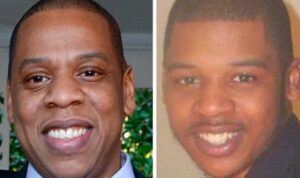This poignant story details the heartbreaking journey of Han Tae-soon, who, after 44 years apart, has reunited with her daughter, Kyung-ha, only to discover that Kyung-ha was kidnapped as a child and adopted without consent. Han is now taking legal action against the South Korean government, alleging complicity in the illegal adoption practices that have affected countless families.
Separated by Fate: A Mother's Fight for Justice Following 44-Year Separation

Separated by Fate: A Mother's Fight for Justice Following 44-Year Separation
After a decades-long search, Han Tae-soon has located her daughter, Kyung-ha, in the U.S. and is now suing the South Korean government for failing to prevent her forced adoption.
For over four decades, Han Tae-soon searched for her daughter, Kyung-ha, believed to have vanished in 1975 in Seoul. The moment is now etched in her memory: a sunny day as she left for the market, only for her daughter to say she would rather play with friends. Upon returning, Han found her daughter missing, leading to a 44-year odyssey of anguish and uncertainty.
The reunion is bittersweet; Kyung-ha, now living in the U.S. as Laurie Bender, is nearly unrecognizable to her mother. Han alleges that her daughter was not just lost but kidnapped, taken to an orphanage, and ultimately adopted by another family in America—a revelation that has led her to launch a lawsuit against the South Korean government.
This case is one of many ignited by a recent inquiry revealing extensive human rights violations related to South Korea's controversial adoption policies. With an estimated 170,000 to 200,000 children adopted overseas since the 1950s, many parents like Han allege that their children were taken under dubious circumstances, highlighting cases of fraud, illegal adoptions, and human trafficking.
Experts are assessing the implications of the inquiry's findings, which may pave the way for more legal challenges against the government. Han's case is unique as she is the first biological parent of an adoptee in the U.S. seeking damages from the state. The government expressed its deep sympathy for Han's plight and acknowledged the pain experienced by families in similar situations as it prepares to respond to the lawsuit.
For years, Han used every possible means to locate her daughter—visiting police stations, orphanages, and even making television appeals. A breakthrough occurred in 2019 through a DNA matching initiative, leading to a tearful reunion at the airport in Seoul, where they embraced and expressed their sorrows over lost time.
The circumstances of Kyung-ha's kidnapping are chilling; as a six-year-old, she was lured away by a woman claiming to know her mother, only to find herself abandoned and taken to an orphanage before her adoption. This pattern of "mass export" of children raises questions about the motivations behind the adoption program initiated in the wake of Korea's civil war.
The truth is that this issue transcends individual cases—it's indicative of a broader, systemic failure in governance and oversight. Questions are now mired in the ethical implications surrounding adoption and the culpability of the state versus private adoption agencies.
While meaningful policy changes have begun to emerge in South Korea with more stringent government control over adoption practices, many feel it is too late for families like Han's, who are still grappling with the emotional scars of separation.
As Han works on improving her English to strengthen her bond with Laurie, the struggle remains palpable: should reconciliation prove a feasible path, the haunting uncertainties of the past still linger, magnifying the losses both mother and daughter endure as they traverse the complexities of reconnection amid the weight of history.





















